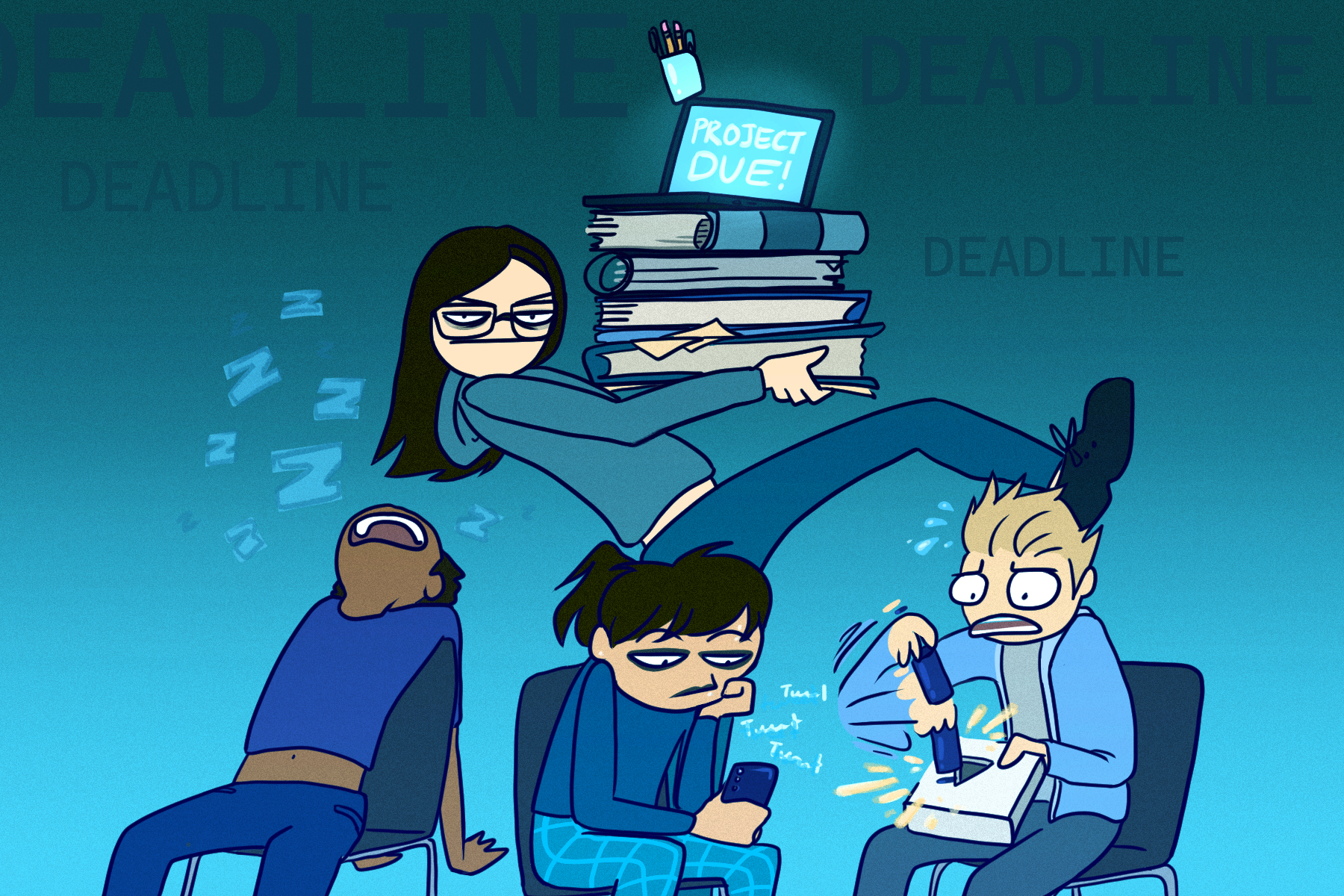Think back to a time when you had to work on a group project: What type of teammate were you? For example, in every group, there is always that one person who does nothing but still takes all the credit. And there’s another person who wants to lead but thinks that yelling makes them a leader. The jokester of the group makes people laugh about stupid things. And last, of course, there is the quiet one who does all the work and should be the team lead but would rather work in the background. To ask which one resonates with you isn’t fair because, in reality, there are more than four types of teammates — it all depends on the group you’re working with.
If you’re like the majority of students, you believe that group projects are the worst and have given you nothing but trust issues. Working on a group project is supposed to teach students how to communicate, share responsibility, collaborate, and work as a team; however, your group members aren’t always the best and can easily let everyone down. Still, everyone should learn how to work in groups. It’s something students master throughout their school life and then use in professional spaces. What can you do to change your mindset the next time you work on a group project? Below are a few tips that can help the next time you have a project to work on.
Tips on Working on a Group Project
Nobody teaches you the importance of working with a person you don’t like than the person you don’t like. Working with them is difficult and they can be the type of person that kills the mood for everyone in the group. However, learning to work with classmates you don’t like is crucial. You don’t have to like each other to work together. Nevertheless, having respect for one another is vital to completing any kind of group project.
Learn to pick your team wisely because it’s going to be a hell of a ride. Everyone doesn’t think like you or have the same drive to get things done. Most importantly, don’t be picky about who you want on your team because people will surprise you. For instance, the boring student in the class isn’t uninteresting; they’re just quiet. The wild students aren’t just crazy; they may know when to be serious. The main thing to take from this is that there is more to people than what they share with the world, so give people a chance.
What about when you don’t get to pick your teammates? You would face the situation the same way but with a different strategy. For instance, the team can pick a day to meet up and get to know each other. This can take place over Zoom or during a meetup at a coffee shop. Play a game or ask each other questions. Of course, it’s important to be mindful of the questions you ask so you don’t make someone else feel uncomfortable. Creating a space that allows everyone to be at ease will make the group project run smoothly.
When working on projects, it is vital to have a team lead; this person keeps the group in check and keeps an eye on any problem that arises during the assignment. The benefit of this position is that it teaches the students leadership skills they can use in the real world. Any student that gets this role should see it as an opportunity to gain a new skill or improve existing ones.
Set expectations for what is expected of everyone in the group. This might entail giving everyone a specific task to complete. Each teammate should be aware of their responsibilities at an early stage because it leaves zero room for excuses. Regardless of what the teammate has on their plate, they all must have a role and find a way to complete their task so as not to disappoint the group.
Set deadlines and meet regularly to make sure everyone is on the same page. When this is done, the student that always ends up doing all the work is given a break. The group project allows for people to work collaboratively and working under a deadline reminds them they are a team. Shirking one’s duties not only affects the individual but everyone in the group. If something comes up that stops the teammate from completing a task, they must alert the group and keep them updated instead of doing nothing. Students should also create a group chat to communicate with each other until it is time to turn in the project.
Lastly, enjoy yourself and see it as an opportunity to gain new knowledge and meet new people. Don’t just work on the project every time the group meets: Go do something fun or go get some food together. Allow this experience to give you a new perspective on the way you view the world and its people. Doing a group project doesn’t have to suck or make you hate people; instead, it should make you excited because you’re going to walk out with newly acquired wisdom. The whole purpose of working with others is to build life skills, like communication, responsibility and collaboration. Once a student has those skills, working with others gets easier and is no longer a daunting task. To end this on a good note, remember there is more than one way of doing something and you don’t have to do things on your own. Ask for help when you need it and don’t think that people don’t want to help you. For the next time you work on a group assignment, remember to have fun.

















